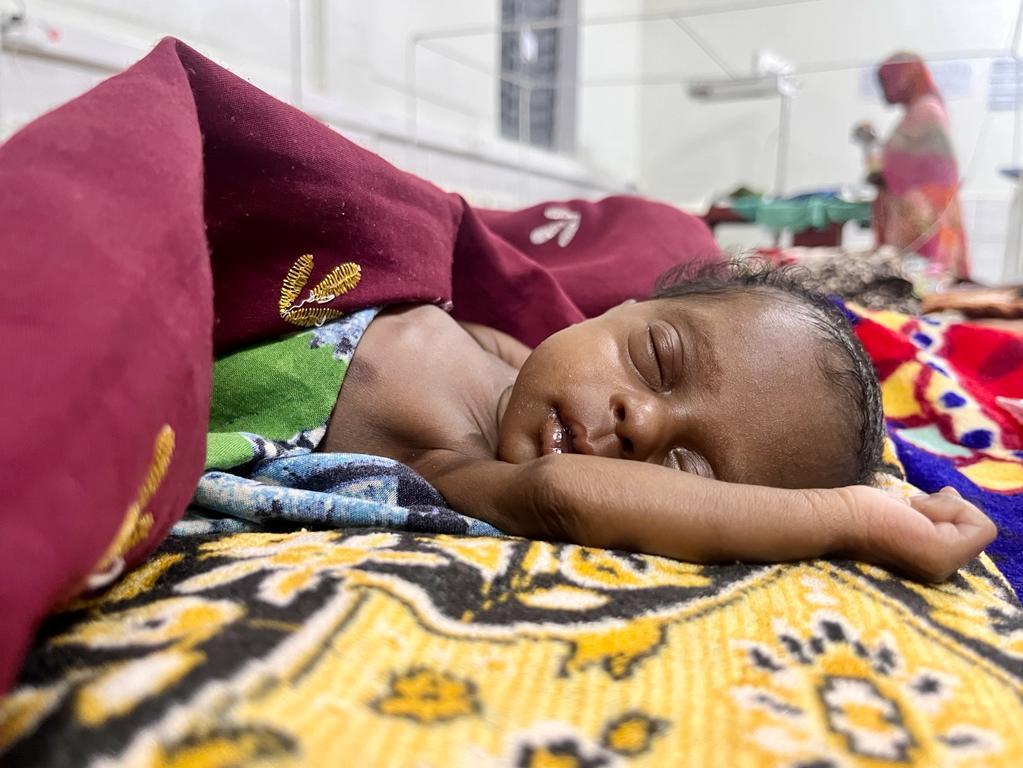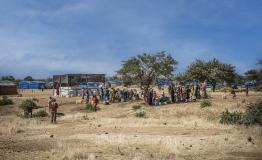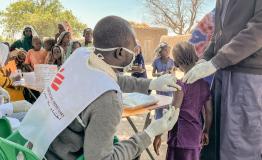In late September, a mother and her newborn baby girl arrived at the MSF neonatal care unit in Adré, in the East of Chad. The little girl came to the world too early in a place that some may call one of the worst places to start their life recently.
Eastern Chad is currently hosting an estimated 450,000 refugees from war-torn Sudan fleeing the conflict that started in Sudan this April. A conflict where attacks on civilians and healthcare are the norm. One vulnerable community is hosting another particularly vulnerable community here in eastern Chad. This is where this baby girl was born, in a shelter, before her mother reached the hospital.
800 grams is way below the average weight of two kilograms for a newborn baby. Even in a more equipped context, it would be a challenge to support a premature baby to survive with such a low weight.
“If there is one point that manifests incredible effort and success of the huge medical team here, it is this girl,” explains Michael Malley, MSF paediatrician. “Keeping an 800 g baby alive requires intense attention to detail over a long time by motivated people”. The team had to check her vital signs every 2-3 hours, check the sugar up to every 2 hours and correct when it was low, check the temperature every 2-3 hours and adjust it. They gave countless doses of antibiotics, checked that the feeding tube was safely in place and provided psychological support for her mother.
By the 1st of November, the baby girl weighed 1 320 grams, still less than the global standard of two kilograms, but fit enough to be sent home. This was a big day for everyone in the team. Before his time at the project ended, Michael paid one last visit to the neonatal unit in Adré Hospital, to make sure that the baby was all right. The mother had named her daughter after Michael, grateful for what the team did for her daughter. So, he is now looking at Mikaela he is looking at, wrapped in a colourful blanket, surrounded by other mothers with their newborn children in the always busy neonatal unit of the Adré hospital.
Since the beginning of this emergency, MSF assisted 1,043 births in the region. Most of them luckily did not follow such a dramatic path. None of these children came to an easy life. Essentials like safe water, sufficient food, and malaria nets are missing. Every day, dozens of malnourished children are treated at the malnutrition ward in the MSF paediatric hospital in Adré. Every week, hundreds of mothers receive therapeutic food to treat their less severely malnourished at home at the distribution points organised by MSF. Yet this is not enough and there are still more people than one humanitarian organisation can save.
Little Mikaela is a spark of hope. For everyone in the MSF teams helping in the east of Chad, but also for the refugees who know that their children can receive free care when needed. As little as 800 grams can weigh a lot. And a little spark can light up the night.



